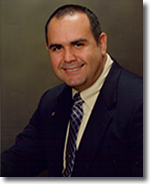
So often when counseling patients, I bring up non-medication alternatives to assist patients in achieving their health goals. Diet, exercise and social activity changes are generically referred to as lifestyle changes. As a patient, hearing these activities brings up images of putting oneself on a diet, starting an exercise routine, or changing a negative behavior – all of which is or can be a lot of work. Sometimes the work is insurmountable and nothing gets done. For this reason, when I counsel patients, I let them know that changing behaviors is not making lifestyle changes, but more like starting a new job. I find it is easier for them to wrap their minds around this concept instead of something that would require them to change long-standing habits that have led them to a less than desirable health status.
When viewed as a job, the patient goes through a training phase, a practice phase and an execution phase. While money is not the reward for the hard work and effort that is expended in improving their health, the benefits become apparent in time with a longer, healthier, more active life if they stick to the plan. Just as a job requires you to show up prepared to put effort into your work, making oneself get out of the rut of poor “lifestyle” choices that led to an unhealthy state requires the same mental discipline, decision-making capabilities, focus and attention to achieving a work goal. In addition, being educated in how, when and why the work (of making healthy choices) is important provides a purpose in achieving the desired outcomes (set by the patient).
This may all seem like a play on words to achieve the desired outcome of a healthier, more active lifestyle; however, how patients perceive the provider’s delivered advice to improve (their health) can make or break the strategy in executing the concept of achieving the desired lifestyle. If this perceptive shift helps in bringing about a positive change in just one patient’s life, then it is worth it.
Until next time, stay healthy.
Dion

